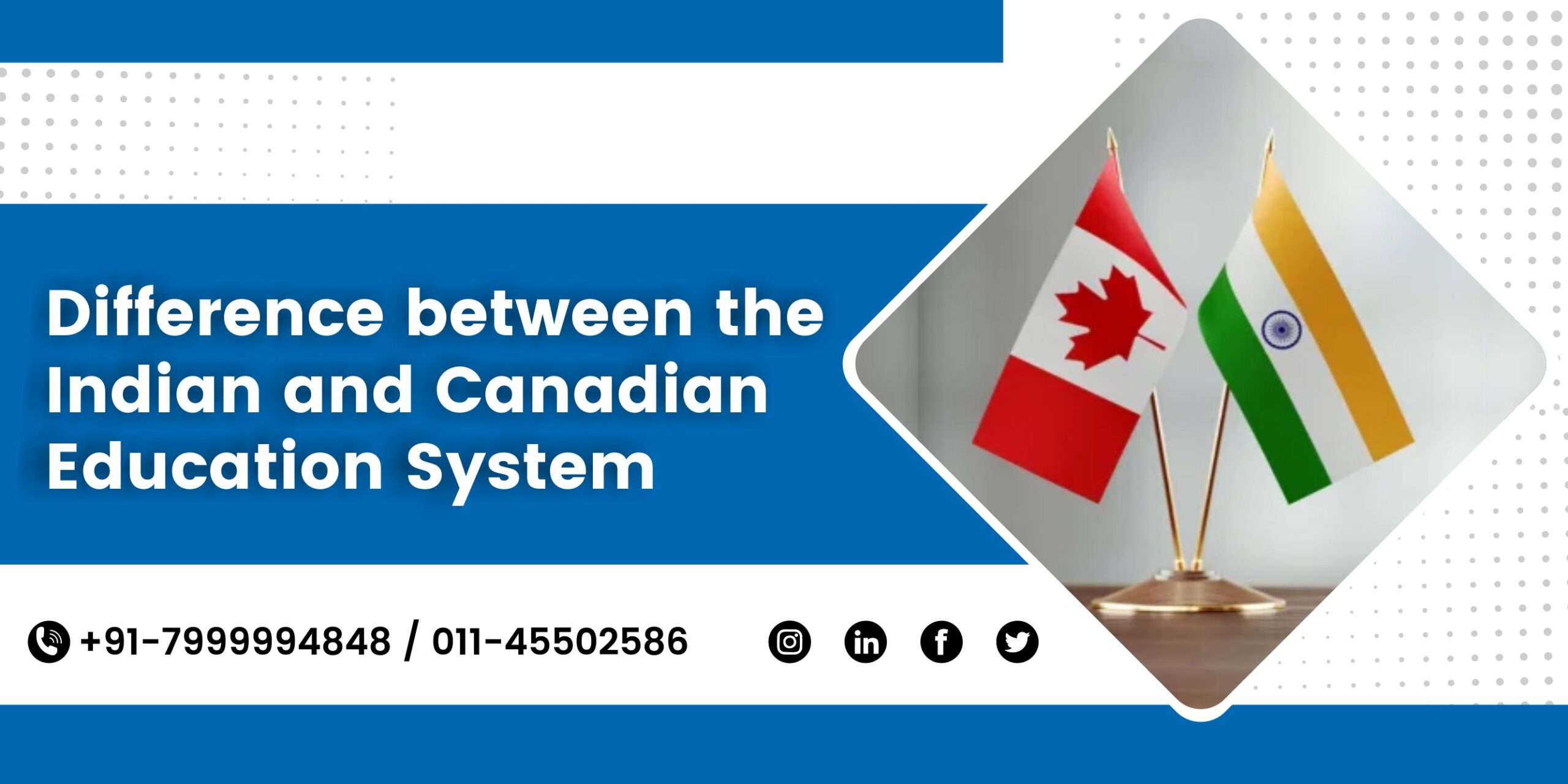Do you want to know the difference between the Indian and Canadian Education System? Are you willing to know about it?
Selecting the right country for your education is not rocket science. However, with a reliable immigration consultant, you can choose wisely. If you are confused about the education system of India or Canada.
This blog has in-depth information on the schooling system and its differences that can help you pick a country sagaciously.
Indian organizations are gaining value by offering high placements and advanced education. However, Canada is always the best choice for individuals, as it is home to more than 1.8 million scholars studying and working there.
India vs Canada education system benefits
There are numerous benefits between India and Canada that are provided to students pursuing their education.
Benefits of the Indian Education System
Indian students enjoy several advantages of being a part of the country, but they are not as extensive as those available in Canada. The following are the benefits offered by government to individuals:
- Public education is free and a fundamental right in India for children between 4 and 16 years.
- According to a report, healthcare in India is free for all citizens, although it includes 18% to 44% of outpatient and inpatient care.
- Other numerous benefits for mankind include the Employees Provident Fund Organization (EPFO), health insurance, and the Public Provident Fund (PPF).
- The Indian government also offers various schemes for the citizens, like Atal Pension Yojna, Ayushman Bharat Yojna, Pradhan Mantri Awas Yojana for housing, Pradhan Mantri Jan Dhan Yojna, etc.
Benefits of Canada
Canada provides a far better lifestyle for its residents. Following is a list of advantages of living and studying in Canada:
- Canada offers pensions for housing, employment insurance, benefits for disabled people, training, and education advantages to students.
- The Canadian government provides free schooling for children of permanent residents.
- Canada has a 3-tier education system, including primary, secondary, and higher education with low tuition fees.
- These advantages also apply to immigrants once they achieve 40 credit points or 10 years of work experience in Canada.
Eligibility criteria in India vs Canada
Both countries have different eligibility criteria for higher education admissions. Some private universities require students to attend an entrance exam for acceptance.
India Eligibility Criteria for Bachelor’s Degree
- Completion of class 12 from a recognized institution with at least 50 percent
- Meeting the minimum cutoff for the entrance exam, depending on the college or university
Eligibility for Master’s Degree
- A bachelor’s degree from a recognized university
- Cracking entrance exams like CAT, AMUEE, JNUEE, etcetera
Canada Eligibility Criteria for Bachelor’s Degree
- Completion of +2 with a minimum of 65 percent
- Proficiency in English with a 6.5 band score or above
- Proof of financial support
- Meet the eligibility criteria for a Canadian student permit
Eligibility for Master’s Degree
- Minimum 16 years of education with a minimum CGPA of 3.0 in bachelor’s degree
- Proof of English language proficiency with 6.5 band score or above
- GMAT/ GRE scores depend upon the university
- Proof of financial support
- Eligible for the Canadian student permit
Top Universities in India & Canada
India and Canada have the best universities that offer several programs and courses to scholars. Look at the top universities in India to pursue your higher education.
- University of Delhi
- Indian Institute of Technology, Bombay
- Indian Institute of Technology, Kanpur
- Indian Institute of Technology, Madras
- Indian Institute of Technology, Delhi
- Indian Institute of Technology, Kharagpur
- Indian Institute of Science
- Jawaharlal Nehru University
- Savitribai Phule University
- Vellore Institute of Technology
Canada Universities
Canada offers top-ranking institutes and an advanced education system. The following is the list of the top-ranked universities in Canada:-
- The University of Toronto
- McGill University
- University of British Columbia
- University of Montreal
- University of Alberta
- McMaster University
- University of Waterloo
- Wester University
- Queen’s University
- University of Calgary
Conclusion
In the blog, you read about the difference between the Indian and Canadian Education System.
Undoubtedly, Canada’s education system is better than India, and because of that, individuals immigrate there for a better future. The Land of Maple Leaf has a better standard of living, low crime rates, medical facilities, and so on.
Sernexuss is the best immigration consultant in India. Our study counselor can assist you in relocating to your dreamland.
